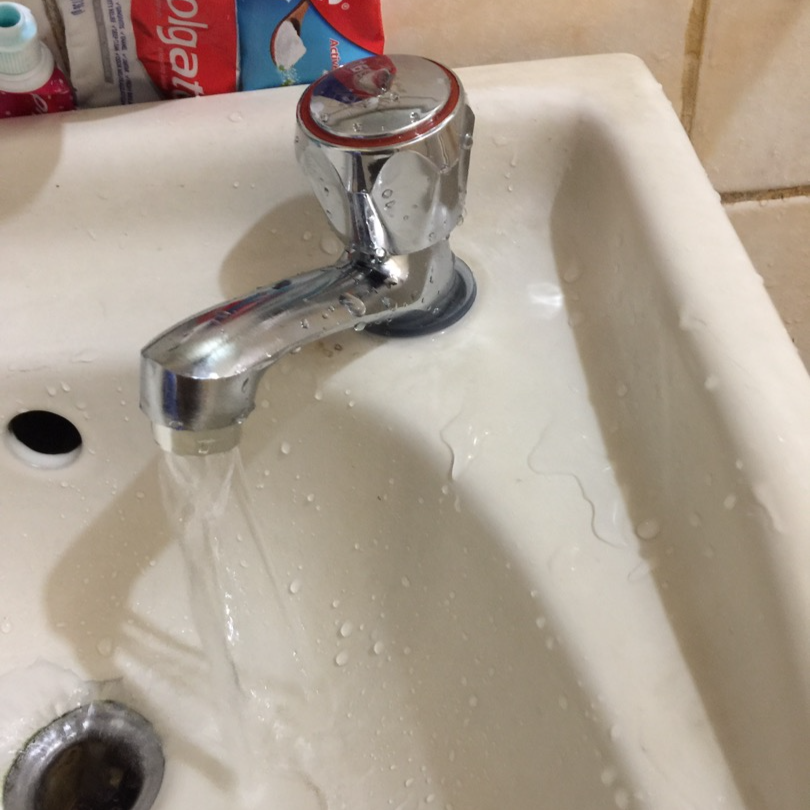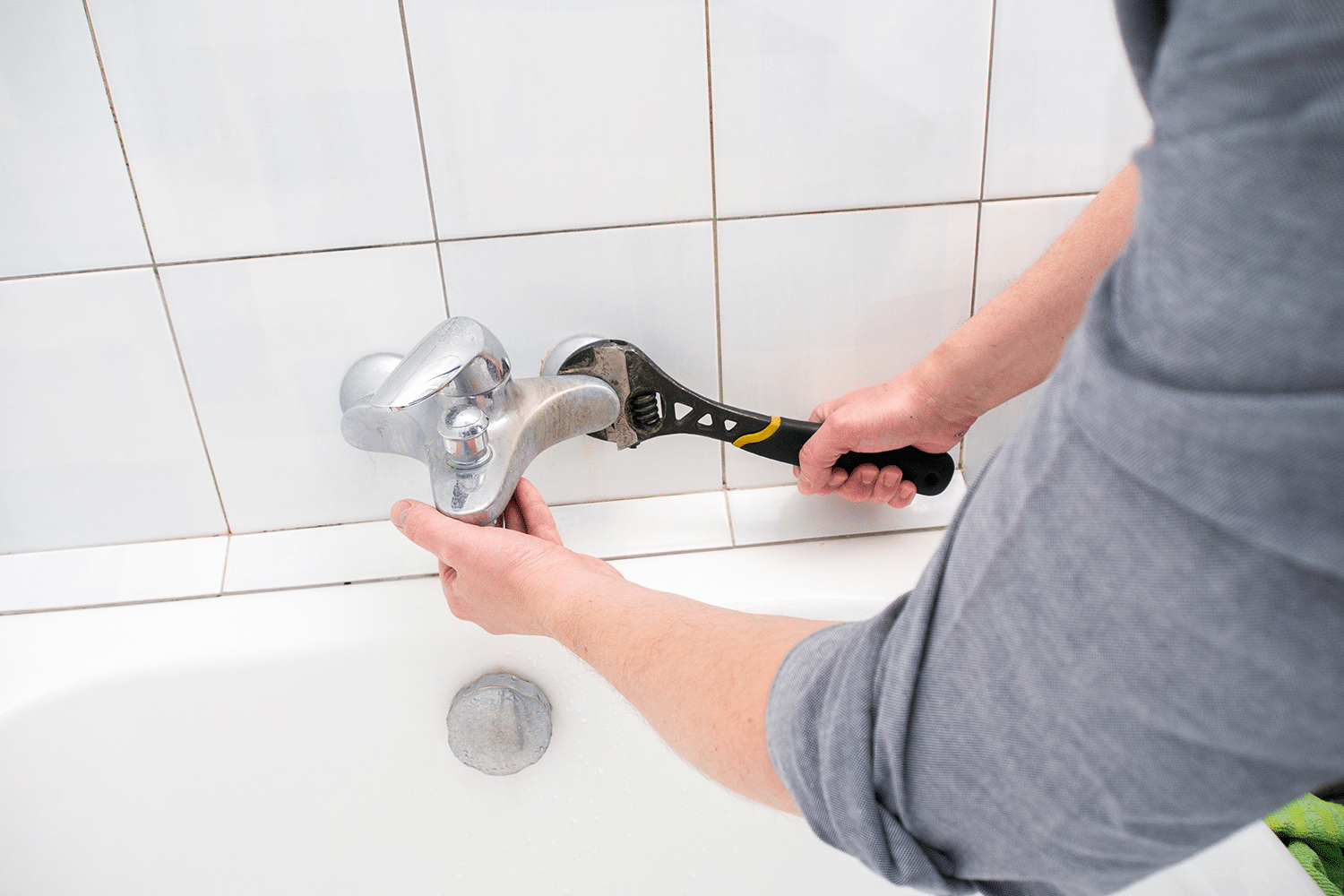Understanding the Significance of Dealing with a Malfunctioning Faucet
Understanding the Significance of Dealing with a Malfunctioning Faucet
Blog Article
What are your insights and beliefs about How to Fix a Dripping or Leaky Faucet ?

Dripping faucets might feel like a minor trouble, however their impact goes beyond just the inconvenience of the noise. From wasting water to incurring unnecessary financial prices and health risks, neglecting a leaking faucet can lead to numerous effects. In this write-up, we'll delve into why it's critical to resolve this common house issue promptly and effectively.
Wastefulness of Water
Ecological Effect
Dripping faucets add substantially to water waste. According to the Environmental Protection Agency (EPA), a single faucet leaking at one drip per second can throw away more than 3,000 gallons of water each year. This not only pressures water resources however also influences communities and wild animals dependent on them.
Step-by-Step Overview to Repairing a Dripping Faucet
Devices Called for
Before attempting to repair a trickling tap, gather the essential tools, including a flexible wrench, screwdrivers, substitute components (such as washers or cartridges), and plumber's tape.
Common Tap Issues and Their Solutions
Determine the type of tap and the particular issue triggering the drip. Common problems consist of worn-out washers, corroded shutoff seats, or malfunctioning O-rings. Describe maker instructions or online tutorials for step-by-step support on repairs.
Financial Prices
Increased Water Costs
Past the ecological impact, leaking taps can inflate water expenses substantially. The collected wastage with time equates right into greater utility costs, which can have been avoided with timely repairs.
Possible Residential Property Damage
Furthermore, long term leaking can cause damage to components and surfaces surrounding the faucet. Water buildup can create staining, corrosion, and even architectural issues if left neglected, resulting in additional repair work costs.
Health and wellness Problems
Mold And Mildew and Mold Development
The consistent presence of wetness from a leaking faucet creates an excellent atmosphere for mold and mildew and mildew growth. These fungis not only jeopardize interior air top quality however also posture wellness threats, particularly for individuals with respiratory problems or allergies.
Waterborne Diseases
Stationary water in dripping taps can become a breeding ground for germs and other pathogens, increasing the risk of waterborne diseases. Contaminants such as Legionella germs thrive in stagnant water, possibly leading to major health problems when consumed or inhaled.
DIY vs. Professional Repair service
Advantages and disadvantages of DIY Repair
While some may attempt to repair a leaking tap themselves, do it yourself repairs include their own collection of difficulties. Without correct understanding and tools, do it yourself attempts can intensify the issue or bring about insufficient repairs, extending the trouble.
Advantages of Hiring an Expert Plumber
Hiring an expert plumber makes sure that the underlying reason for the leaking faucet is addressed successfully. Plumbing technicians possess the knowledge and equipment to identify and fix tap issues effectively, saving time and minimizing the risk of additional damage.
Ecological Responsibility
Specific Contribution to Preservation
Taking obligation for fixing trickling taps lines up with wider efforts towards water conservation and ecological sustainability. Every individual's actions collectively make a considerable influence on preserving valuable resources.
Sustainable Living Practices
By prioritizing timely repair services and adopting water-saving practices, individuals contribute to lasting living techniques that benefit both existing and future generations.
Preventive Measures
Normal Maintenance Tips
To prevent dripping taps, perform routine maintenance such as cleaning up aerators, inspecting for leaks, and changing damaged parts promptly. Additionally, consider setting up water-saving tools or upgrading to a lot more efficient fixtures.
Value of Prompt Repair Works
Resolving dripping faucets as quickly as they're seen stops further water wastage and potential damage, eventually conserving both water and cash in the long run.
Effect On Residential Or Commercial Property Worth
Perception of Well-Maintained Home
Preserving a residential or commercial property in good condition, consisting of resolving maintenance problems like dripping faucets, enhances its perceived worth and worth amongst possible customers or tenants.
Influence on Resale Value
Characteristics with well-kept plumbing components, including faucets, command greater resale worths in the real estate market. Dealing with leaking taps can add to a positive perception during home inspections and settlements.
Final thought
Resolving a leaking tap goes beyond simple benefit; it's a vital step toward conserving water, minimizing economic expenses, and guarding wellness and residential or commercial property. Whether with do it yourself repairs or expert assistance, acting to fix dripping taps is a little yet impactful means to advertise accountable stewardship of resources and add to a much healthier, much more sustainable future.
How to Fix a Leaky Faucet: Step-by-Step Repair Guide
A leaky faucet may seem like a simple annoyance, but if it's not fixed promptly, that leak could cost hundreds to potentially thousands. From water damage to mold, mildew, and high water bills, even a tiny leak can be catastrophic if left unattended. Damage like this can even affect the overall value of your home, so it's important to take the right approach for leaky faucet repair. You may need the help of a plumber in some cases, but we've got a few tips you can try on how to fix a leaky faucet before calling the pros.
Four Faucet Types
When you're learning how to fix a leaky faucet, the first step is knowing what kind of faucet you're working with! There are four common types.
Cartridge Faucets
Cartridge faucets come in one- or two-handled varieties. In one-handled cartridge faucets, hot and cold water combines in a single cartridge. In the two-handled versions, hot and cold water are controlled separately and mixed in the faucet.
Ball Faucets
Ball faucets have a single lever you push up and down to adjust the pressure and rotate to change the temperature. A slotted metal ball controls the amount of water allowed into the spout.
Compression Washer Faucets
They're the oldest type of faucet, but they're still used in many homes — especially older ones. Compression faucets have two separate handles that, when turned, raise or lower the washer that seals a water valve. This valve stops water from flowing through the faucet when it is turned off.
Disc Faucets
Disc faucets rarely need to be repaired due to their maintenance-free design. The water flow is controlled by two discs — the upper one raises and lowers against a fixed lower disc, creating a watertight seal. If your disc faucet starts leaking, you may need to replace the seals or clean residue buildup from the inlets.
Fixing a Leaky Faucet
Step 1: Turn Off the Water
Whether you're learning how to fix a leaky bathtub faucet or how to fix a leaky kitchen faucet, always turn off the water supply to your working area when you're fixing a leak. The last thing you want is a flood added to your list of things to fix.
Look for the shutoff valves below your sink or around the tub and turn them clockwise to stop the water flow. If your faucet doesn't have shutoff valves, you may need to turn off the water for the whole house. Check to make sure it's off by turning the faucet on. If nothing comes out, you're ready to start the repair.
Step 2: Take Apart the Faucet
How you disassemble your faucet depends on the type of fixture you have. You can use a flathead screwdriver to remove the caps on top of the handle or handles for cartridge and compression faucets. Inside, you should see handle screws. Unscrew these with a screwdriver to remove the handle.
Disc- and ball-style faucets will typically have an inlet screw near the handle, and removing that will reveal the interior of the faucet.
Detach the Valve Stem
For cartridge- and compression-style faucets, you'll see the inner valve stem or cartridge once you remove the faucet handles. If you have a compression faucet, unscrew the brass valve stem. If you have a cartridge faucet, pull out the cartridge. If your cartridge has been in place for a while, it may require some tools or extra force to remove it due to mineral deposits.
Examine and Replace Parts
Once you've removed the parts, check them out to confirm what needs to be replaced. You may see corroded rubber washers, O-rings, stems, or cartridges. On a ball-style faucet, check the seats and springs for damage.
If you need to repair a leaky disc faucet, check the inlet and seals on the lower disc.
Once you determine what parts must be replaced, visit your local hardware store. Bring the damaged parts with you to ensure you can purchase the correct components to replace them.
Clean Valves and Faucet Cavity
If you've removed a stem or cartridge, you may notice mineral buildup in the faucet's threads. Use white vinegar to clean the valve seat by soaking it for a few minutes, then scrub it away with a soft toothbrush and rinse with warm water. You can also clean the interior of the faucet in the same way.
Reassemble the Faucet
Once your faucet is cleaned and the required parts have been replaced, it's time to reassemble it. Put the pieces back together and slowly turn the water supply back on. Doing this slowly is crucial because too much initial water pressure can damage the new hardware you've just installed.
https://homewarranty.firstam.com/blog/how-to-fix-leaky-faucet

As an enthusiastic reader on Why It's Important to Fix Leaky Faucets, I figured sharing that piece of content was a good thing. Remember to pause to distribute this post if you enjoyed reading it. Many thanks for your time. Come back soon.
Report this page